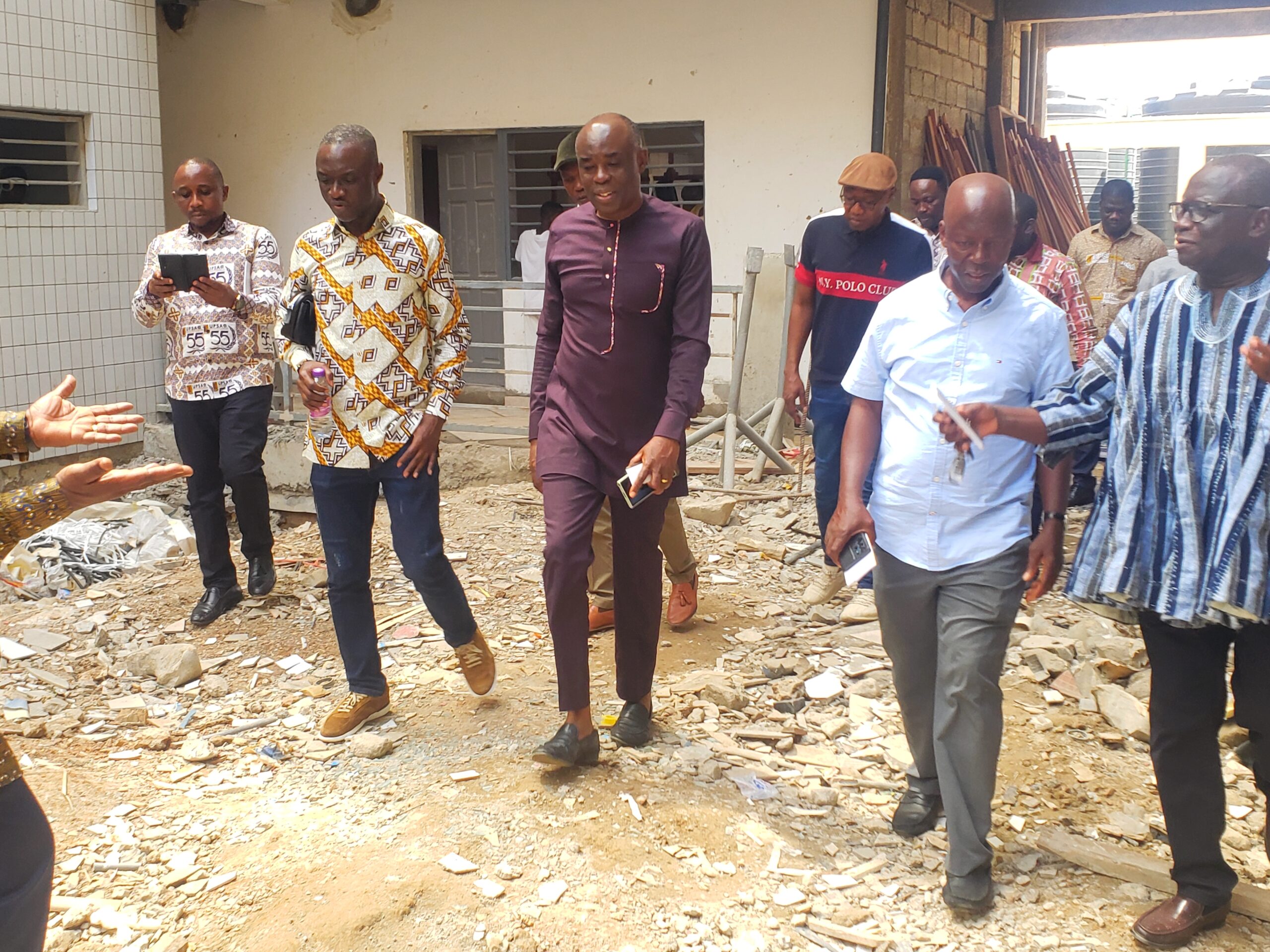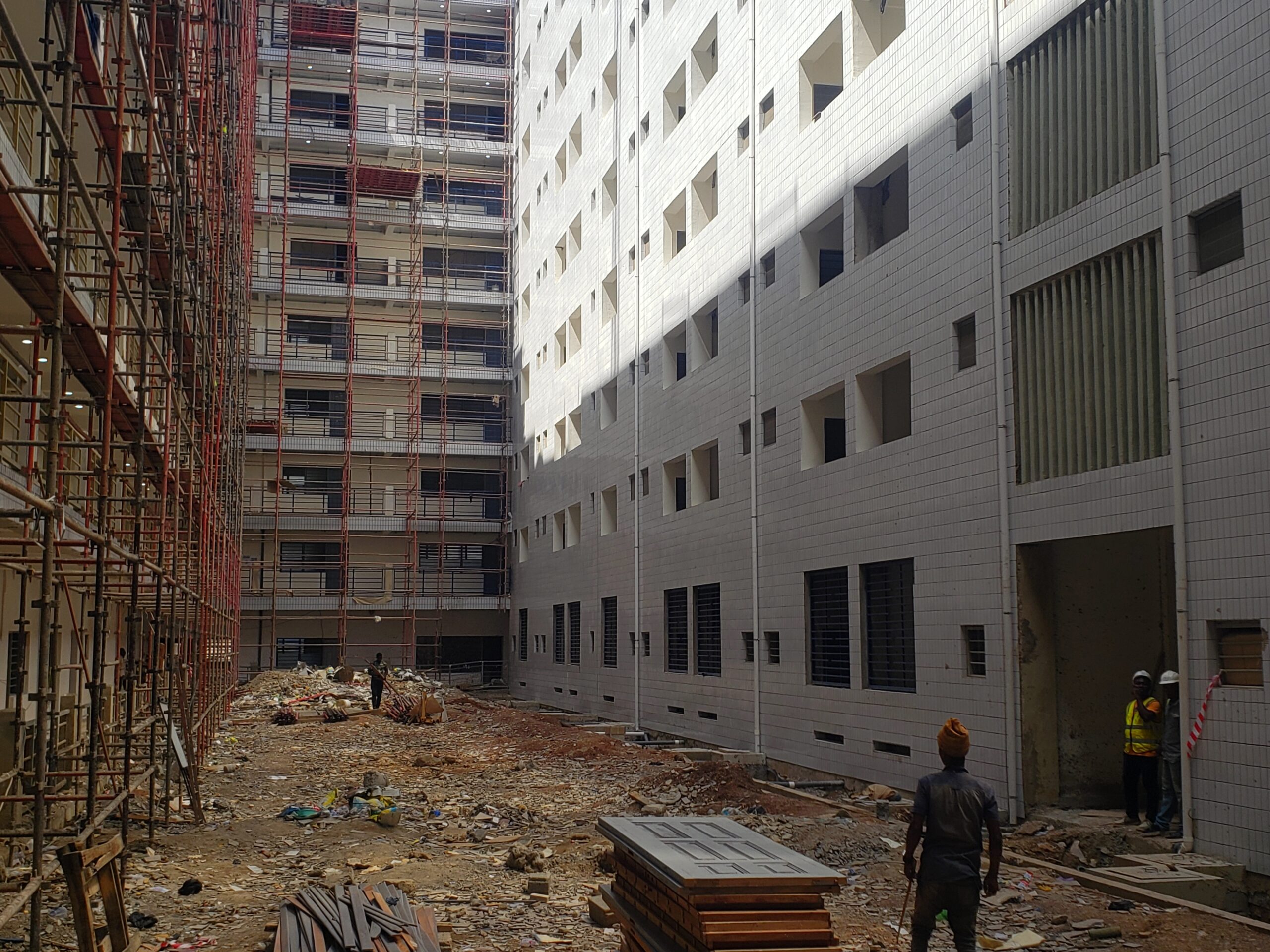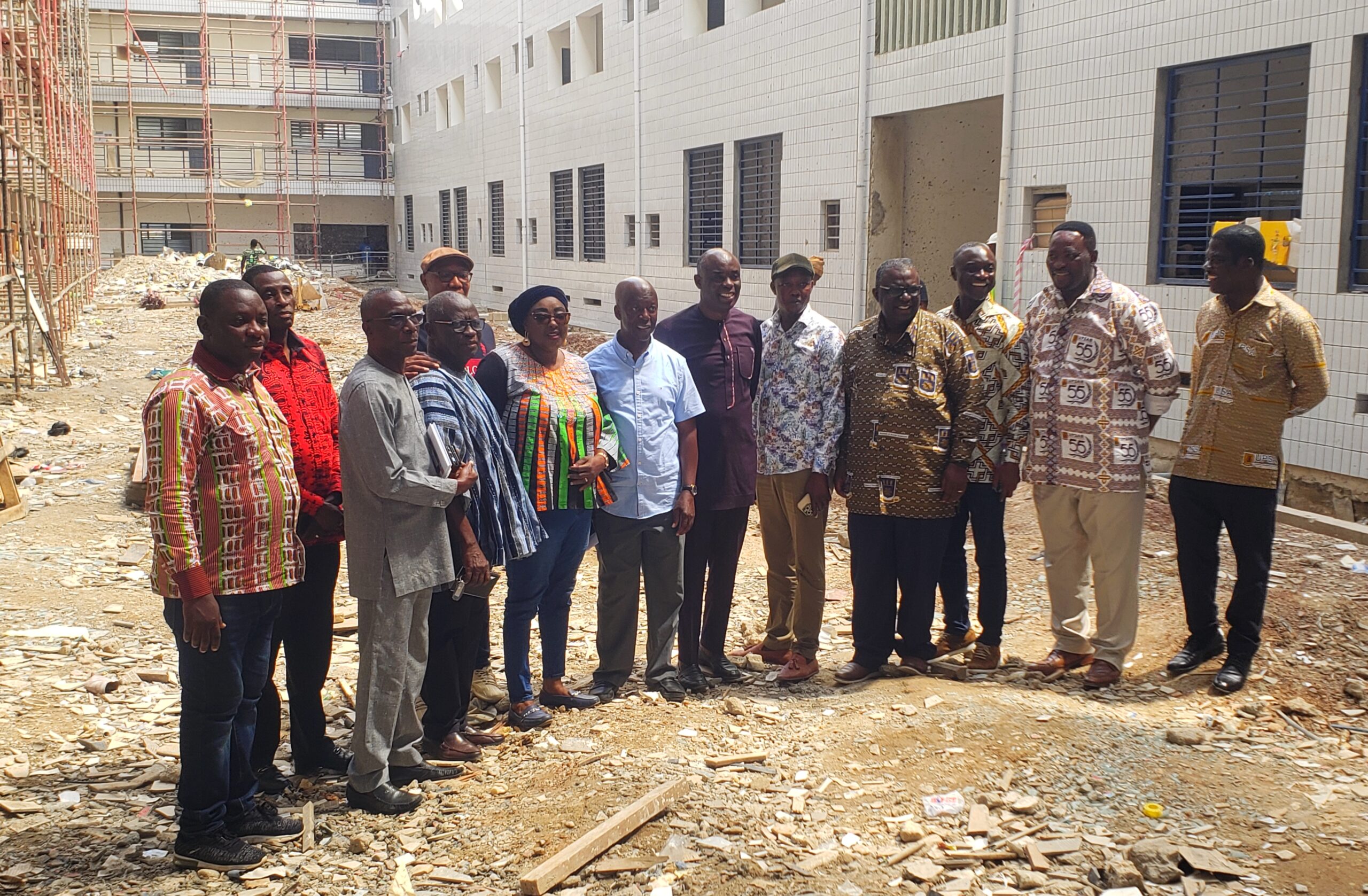Members of the Parliamentary Select Committee on Education have commended the Management of the UPSA for their sterling leadership and innovative approach to higher education management, which has positioned the University as one of the most preferred centres for academic excellence in Ghana and across West Africa.
The committee, led by Chairperson, Hon. Kwabena Amankwa Asiamah, also praised the university for its unique business model of self-financing infrastructure projects through internally generated funds, and adopting innovative solutions to addressing developmental needs without waiting on the central government.
This, according to the chairman, is commendable and worthy of emulation.
Mr Asiamah made these remarks when members of the committee paid a working visit to the UPSA on Friday, October 7.
The visit was to afford the MPs first-hand information on the operations and challenges of the University as well as an opportunity to inspect stalled GetFund projects on the University’s campus.

Addressing members of the committee, the Vice-Chancellor of UPSA, Prof Abednego F. O. Amartey, bemoaned the delays in the construction and completion of some notable GETFund projects, which he said was negatively impacting teaching and learning at the university.
He mentioned that, as a result, the UPSA in recent years consulted GETFund to enable the University to self-finance some of these stalled projects through internally-generated funds.
“Even though construction works on various GETFund-initiated projects were stalled for many years, the management of UPSA, through its innovative management, has been able to complete some of these projects on its own with the approval of GETFund,” the VC said.

“The rippling effect of the delays in these non-completed projects is that the cost of the projects often goes beyond the financial capacity of the university at the end due to persistent revisions in the project sum.”
Concerning internal challenges, the Vice-Chancellor appealed to the Committee to impress on the Finance Ministry to settle all outstanding legacy debts owed to the Electricity Company of Ghana and other utility service providers, a development that Prof Amartey insists could threaten power supply to the UPSA campus.
Prof. Amartey also seized the opportunity to explain some innovative policies set in place by the University to enrich students’ collegiate experience.
Some of these policies, he said, include UPSA’s unique academic model, which combines face-to-face and online pedagogy, making it possible for students to graduate ahead of their peers in other tertiary institutions.
He also mentioned the University’s fixed fee policy, which enables students to pay a fixed non-incremental tuition fee throughout their period of study. The VC emphasised that in addition to that, the management of the University has not increased the tuition fees for students over the past four years despite the growing cost of running the university.
The MPs toured the two newly constructed student hostel facilities meant to meet the accommodation needs of students due to the ever-increasing student population of the university, which currently stands at more than 20,000.
They expressed their delight at the proactive interventions put in place by the University’s management and were particularly intrigued by the fixed fee policy, which they believed would help parents and guardians to plan for their wards’ future in the face of growing economic uncertainty.
The Chairperson of the parliamentary committee, Hon. Kwabena Asiamah, acknowledged the challenges outlined by the Vice-Chancellor and assured him that his concerns would be incorporated into the final report of the committee that would be tabled before the Legislature.
He also assured the UPSA management that their concerns would be escalated to the appropriate quarters for redress.



